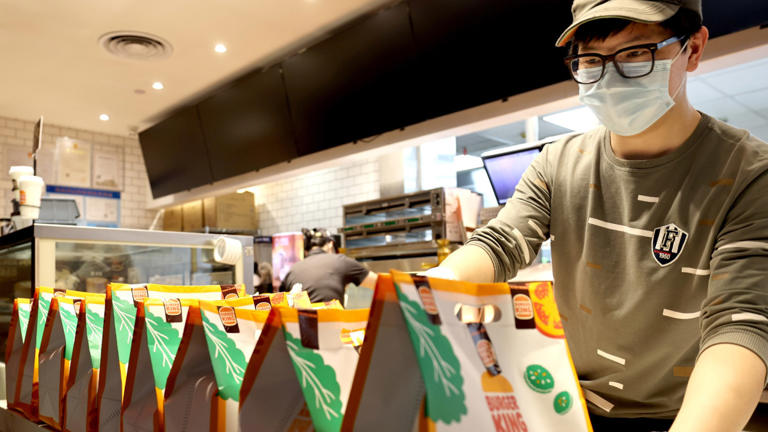Competition within the fast-food industry has intensified due to various challenges, including inflation, consumer concerns about the economy and job security, and the affordability of dining at home. These factors, coupled with increased debt levels among many fast-food chains during the COVID-19 pandemic and rising labor costs, have created a challenging environment for operators.
In 2023, the fast-food landscape saw significant upheaval, with three major Burger King franchise operators filing for bankruptcy, leading to the closure of hundreds of stores. Additionally, several Popeyes franchisees faced financial difficulties, resulting in the closure of numerous locations.
Responding to the challenges, Restaurant Brands International (RBI), the parent company of Burger King and Popeyes, took proactive steps to stabilize its operations. RBI intervened by acquiring one of its key franchisees, Carrols Corporation, which operates a substantial number of Burger King restaurants across 23 states. Carrols also owns and operates Popeyes outlets in several states.
RBI’s acquisition of Carrols was strategic, aiming to safeguard the operations of Burger King and Popeyes in the wake of franchisee bankruptcies. By acquiring Carrols, RBI ensured the continued operation of a significant portion of Burger King restaurants and Popeyes outlets. This move helped mitigate the impact of franchisee closures and maintain the brands’ presence in key markets.
While RBI’s intervention included the purchase of select locations from troubled franchisees Premier Kings and Meridian, it also involved allowing certain locations to close. This strategic decision allowed RBI to focus on preserving the viability of key Burger King and Popeyes outlets while rationalizing its store portfolio in response to changing market dynamics.
Overall, RBI’s acquisition of Carrols and its proactive approach to managing franchisee challenges demonstrate the company’s commitment to maintaining the strength and resilience of its fast-food brands amidst a challenging operating environment.
Another fast-food chain faces bankruptcy problems
Bojangles, although not as widely recognized as Burger King or Popeyes, boasts a strong presence with over 800 restaurants across eight states. The chain prides itself on offering Southern-inspired cuisine, including chicken, biscuits, and tea made from authentic recipes since its inception in 1977 in Charlotte, North Carolina.
Similar to RBI, Bojangles operates using a franchise model, relying on the financial stability of its franchise operators for success. However, the company faced challenges when all of its locations in Maryland were forced to close due to the financial difficulties of one of its franchisees.
Unlike RBI, Bojangles operates as a private company, having been taken private by Durational Capital Management LP and Jordan Co. in 2018. As a result, the company does not publicly disclose its financial information, making it difficult to assess whether broader market challenges contributed to the closure of its Maryland locations following a Chapter 11 bankruptcy filing.
Despite these setbacks, Bojangles remains committed to its expansion efforts and preserving its brand identity rooted in Southern hospitality and cuisine. As it navigates through financial challenges and franchisee issues, the company continues to focus on growth and maintaining its reputation as a beloved Southern dining destination.
Bojangles has a messy bankruptcy situation
Despite still being listed on the Bojangles website, the locations in Maryland have remained closed since late 2023. These outlets were operated by Salim Kakakhail and Yavir Akbar Durranni, operating under various LLCs, including ABS Network, according to reports from local news channel WUSA9.
An investigation by the state has been initiated against the owners in response to complaints regarding wage theft and fraudulent W2s. In November, Durranni and ABS Network filed for bankruptcy in New Jersey, as reported by WUSA9.
The former owners are facing financial challenges beyond their operational difficulties. They owe the state over $69,000 in back property taxes, in addition to the wage-related issues.
Former employees have also revealed that the restaurants would resort to purchasing fried chicken from competitors such as Popeyes and Safeway when their own stores ran out of stock.
Bojangles addressed the situation, emphasizing the independent nature of franchisees within their system: “The franchisee is no longer in the Bojangles system. However, it is important to note in your coverage that franchisees are independent business owners who are licensed to operate a brand but have autonomy over many aspects of their business, including hiring employees and payroll responsibilities.”
